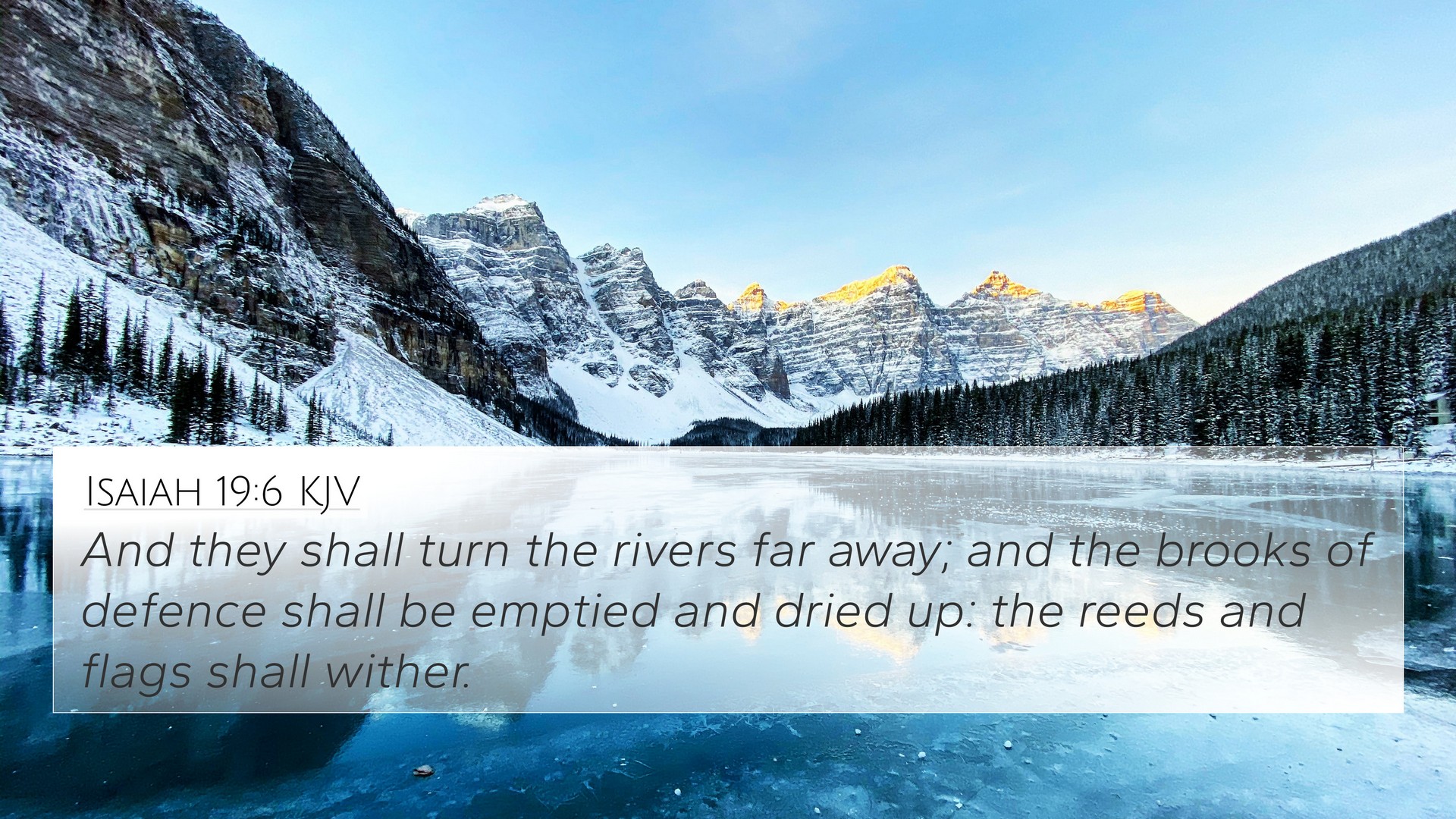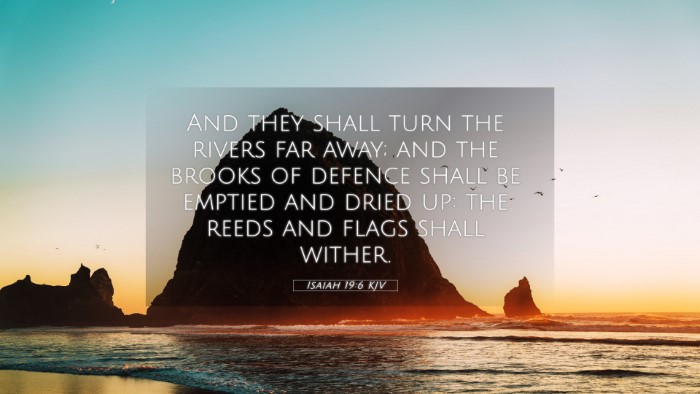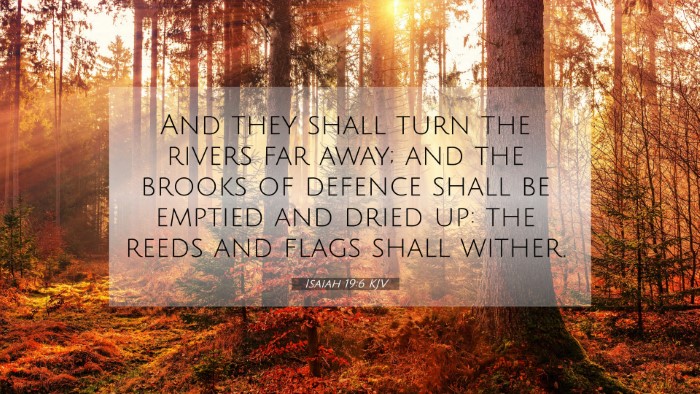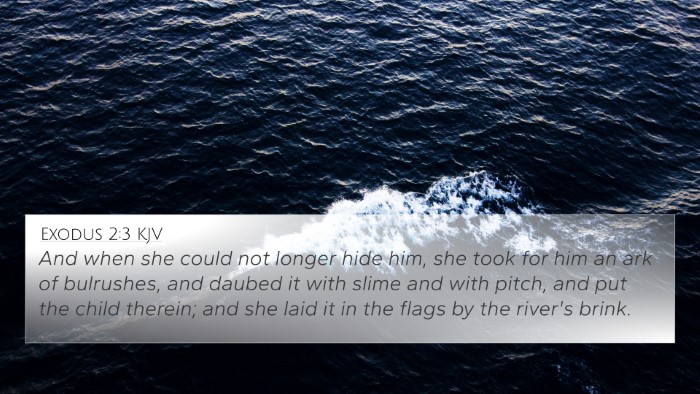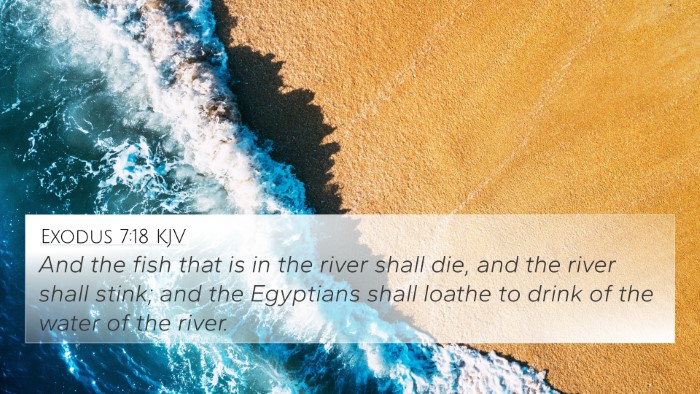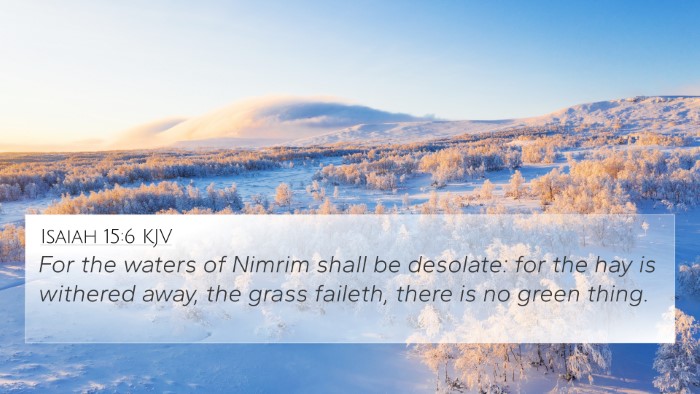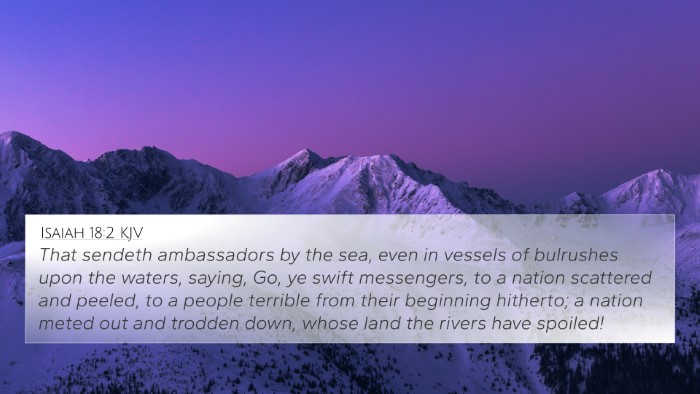Understanding Isaiah 19:6
Isaiah 19:6 states: "And they shall turn the rivers far away; and the brooks of defense shall be emptied and dried up: the reeds and flags shall wither." This verse captures the dire consequences of Egypt's impending desolation and serves as a reminder of the Lord's sovereignty over nations.
Summary of Verse Meaning
The implications of Isaiah 19:6 relate profoundly to the themes of divine judgment, environmental desolation, and national collapse. Through the imagery of dried rivers and withering reeds, this verse emphasizes the disruption of natural order as a consequence of spiritual failings.
Commentary Insights
-
Matthew Henry:
Henry interprets this verse as a symbol of Egypt's diminished glory. The drying up signifies a loss of sustenance and livelihood, portraying a stark picture of what happens when nations turn away from God.
-
Albert Barnes:
Barnes suggests that the drying of rivers represents both literal drought and metaphorical barrenness due to sin. His commentary points out that this verse serves as a warning of God’s judgment that can lead to desolation in various forms.
-
Adam Clarke:
Clarke emphasizes the imagery of the reeds and flags which denote the abandonment of Egypt's former strength. He highlights how natural calamities are often a reflection of God’s displeasure with a nation’s disobedience.
Cross-References to Isaiah 19:6
This verse resonates with several other biblical texts that echo similar themes of judgment and desolation:
- Jeremiah 50:38: Discusses the drought and desolation of Babylon, paralleling Egypt's fate.
- Amos 8:11: Foretells a famine of hearing God’s word, linking spiritual neglect to physical sustenance.
- Revelation 16:12: Depicts the great drying up of the river Euphrates, symbolizing divine judgment across nations.
- Ezekiel 29:9: Mentions the desolation of Egypt and its cities as a result of God’s judgment.
- Isaiah 5:25: Describes the consequences of a nation’s rebellion against God, leading to destruction.
- Isaiah 24:4-5: Talks about the earth mourning and the heavens losing their luster due to God's anger.
- Psalm 107:33-34: Illustrates how God can turn fruitful land into barrenness as a response to sin.
- Joel 1:17: Points to the withering of crops and the resultant desolation from divine punishment.
- Micah 7:13: Reflects on the desolation of the land as a result of the people's actions against the Lord.
- Isaiah 1:30: Indicates how the lack of spiritual health leads to physical decay and devastation.
Thematic Connections
Isaiah 19:6 can be analyzed through various thematic lenses:
- Divine Judgment: The consequences of Israel’s and Egypt’s sinful acts demonstrate God’s control over nations.
- Environmental Imagery: Dried rivers and wilting vegetation signal broader themes of disaster resulting from infidelity to God.
- Hope Amidst Judgment: While this verse denotes destruction, other parts of Isaiah point toward future restoration, showing God's mercy.
Conclusion
Isaiah 19:6 serves as a rich verse for personal reflection and study, highlighting the importance of abiding by God's word. By cross-referencing this verse with others, one can achieve a deeper understanding of how the themes of divine judgment, environmental decay, and national collapse resonate throughout the Scriptures.
Tools for Understanding Bible Cross-References
For those looking to explore Bible verse cross-references and deepen their understanding of scriptural connections, consider these tools:
- Bible Concordance: A useful resource for locating specific verses and their references.
- Bible Cross-Reference Guide: A tool that links related verses for comparative study.
- Cross-Reference Bible Study: Methods that allow deeper thematic exploration of scripture.
- Comprehensive Bible Cross-Reference Materials: Engaging resources that aid in recognizing motifs and sequential studies across the Bible.
